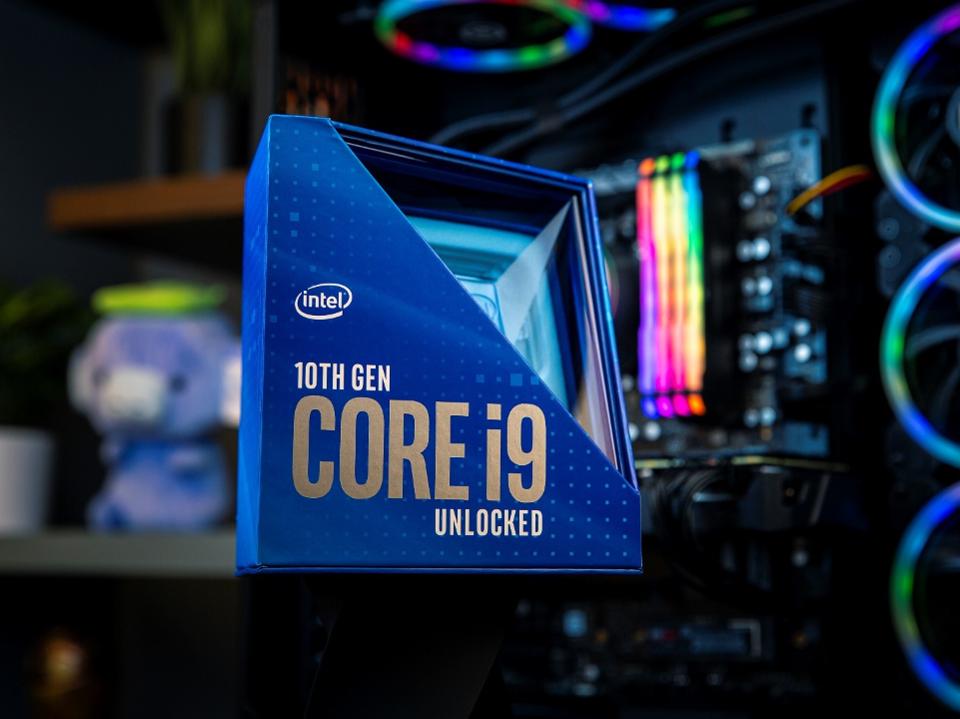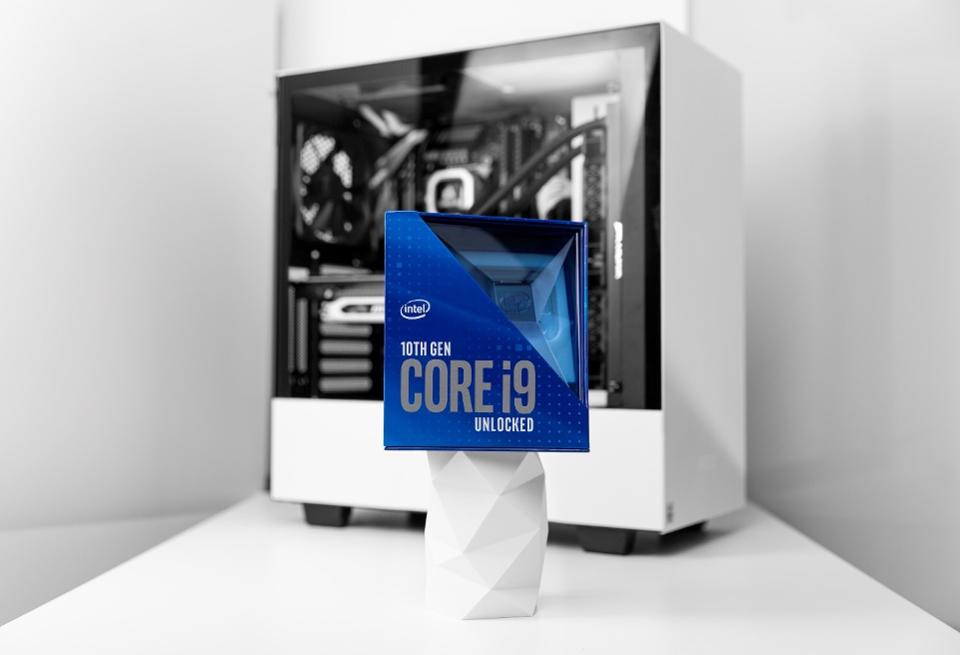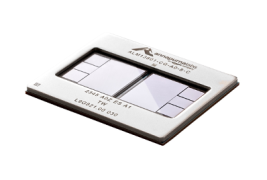
INTEL
Intel introduced its 10th Gen Core S-series processors aka “Comet Lake” last week that target the high-end gaming community. Intel’s CPUs improve with higher clock speeds, more cores and gamer-and-content-creator-specific features. The “Comet Lake S” desktop processors are expected by many to rival AMD’s ever-pressing Ryzen 3000 series processors with a focus on gaming performance at the highest-end configurations. I will be waiting for the reviews that should be out at the end of the month to see if the new processor lives up to the claims.
The world’s fastest gaming processor?
Included in the new 10th Gen Core S-series processors is the flagship Core i9-10900K processor. Out of the 10th Gen Core S-series desktop processors, I would like to focus on the Core i9-10900K because Intel is calling “the world’s fastest gaming processor.” In order to score Intel’s Core i9-10900K processor as the world’s fastest gaming processor, it needs to be tested against the 16-Core Ryzen 9 3950X, which according to most outside testing is the world’s fastest gaming processor. According to Intel’s testing, the Core i9-10900K and Core i9-10900KS bested the Ryzen 9 3950X in the majority of the 25+ games Intel tested. AMD’s 3950X is also a more expensive chip than Intel’s Core i9-10900K by almost 50% which would make Intel a better high-performance gaming value. That said, AMD is starting to slope down the price of the 3950X towards $700.
Intel was able to achieve this performance with the Core i9-10900K because of the tweaks it did to its already mature 14nm architecture. Ironic, right? This reminds me of what AMD was going through a decade ago, getting every last ounce out of a specific geometry. I will be consistent in what I have been saying this topic for 20 years. Users don’t actually care about the process. Desktop gamers care about delivered performance on games they care about at a certain price point. Some care about fan noise and power draw but not many.
Intel boosted the clock speed of the Core i9-10900K to up to a peak of boost 5.3GHz with the ability to boost it even higher. Intel’s focus on improving the clock speed and giving gamers an advantage in overclocking makes the new Intel 10th Gen Core processors competitive with AMD’s Ryzen processors.

INTEL
Before we give Intel a win here for gamers, we need to wait for the reviews to come in. I also think it is important to take a look at how Intel did its tests against the Ryzen 9 3950X. Intel tested the Core i9-10900K, Core i9-10900KS, and the Ryzen 9 3950X with an NVIDIA GeForce RTX 2080 Ti with 4 sticks of 8GB 2666, 2933 or 3200 MHz memory and an Intel Optane SSD 905P running on Windows 10. The way that Intel scored the processors is based on in-game benchmarks for games that have them and frames per second measurement where games do not. The reason Intel used this method of game performance benchmarking is that it wants to get as close to real-world performance as possible. And that’s good.
I have not heard of nor seen any Ryzen 9 3950X motherboards with the capability to run Intel Optane storage and you won’t. Assuming Intel was able to get their hands on one of those, I can see the Intel Optane SSD giving the Intel processors a slight advantage over the Ryzen. I couldn’t see it being enough of an advantage to say it is the only reason the Core i9-10900K and Core i9-10900KS bested the Ryzen 9 3950X. Gaming performance for Processors relies on higher clock speeds for the best gaming performance.
Features that make the 10th Gen Core processors competitive
Like the ability to have Intel Optane storage, there are some features that the new Intel Comet Lake S CPUs have that make them favorable for gaming. Intel says that its Thermal Velocity Boost (TVV) gives gamers and creators an automatic boost across single-core and multicore workloads, with up to 5.3 GHz boost clock speed. They also have Intel Hyperthreading Technology across all 10th Gen Core processors, a feature that was problematic on the 9th Gen Processors.
Other features that gamers will appreciate are Intel Ethernet Connection I225 and integrated Intel Wi-Fi 6 AX201 on all 10th Gen Core desktop processors. Both should give gamers faster connections in games. However, motherboards still need to support both of these features in order for them to be usable. Intel is also introducing easier to use overclocking tools to both consumers and motherboard vendors to give gamers that extra value out of their CPUs without too much effort.
Moor Insights & Strategy analyst Anshel Sag says, "Intel is really expanding how the company leverages the company’s portfolio of technologies to differentiate the gamer experience in ways that the competition cannot with connectivity and storage.”
The 10th Gen Core i9-10900K on paper
On paper with the exception of frequency, compared to the Ryzen 9 3950X, the Intel Core i9-10900K, has less impressive specs. The Core i9-10900K has ten cores and 20 threads while the Ryzen 9 3950X has 6 more cores and 12 more threads at 16 cores and 32 threads. It uses an architecture based on a larger 14nm process compared to Ryzen’s 7nm-based architecture. It has a higher 125 TDP compared to Ryzen’s 105 TDP and that’s not accounting for the power needed to reach the 5.3 GHz boost, and it uses a lower DDR4-2933 system memory compared to Ryzen’s DDR4-3200MHz system memory. All these specs should tell us that the Ryzen 9 3950X outperforms the Intel Core i9-10900K in all categories, but that is not the case. The Intel Core i9-10900K is able to take its stand in the games category.
But again, specs only matter if it can improve the gaming experience. I do believe the 3950X will perform better on gaming multitasking like gaming plus streaming or game-capture-edit as the extra cores come in handy for that. We’ll have to wait for the reviews.
Competition is good
I think Intel’s 10th Gen Core i9-10900K likely gives Intel enough to compete with AMD’s Ryzen 9 3950X in gaming. With its 5.3GHz boost clock speed, very mature 14nm architecture, and Intel’s gaming features, it will likely be able to compete, and in many cases, be considered the world’s fastest gaming processor. While many gamers will use their PCs for more than just gaming, I believe the primary purchase and focus of gamers is gaming performance and that’s why I believe that Intel will still sell plenty of the i9-10900K as long as the reviews bear out the benchmarks.
Note: Moor Insights & Strategy analyst Anshel Sag and co-op Jacob Freyman contributed to this article
Patrick founded the firm based on his real-world world technology experiences with the understanding of what he wasn’t getting from analysts and consultants. Ten years later, Patrick is ranked #1 among technology industry analysts in terms of “power” (ARInsights) in “press citations” (Apollo Research). Moorhead is a contributor at Forbes and frequently appears on CNBC. He is a broad-based analyst covering a wide variety of topics including the cloud, enterprise SaaS, collaboration, client computing, and semiconductors. He has 30 years of experience including 15 years of executive experience at high tech companies (NCR, AT&T, Compaq, now HP, and AMD) leading strategy, product management, product marketing, and corporate marketing, including three industry board appointments.
- Patrick Moorheadhttps://moorinsightsstrategy.com/author/phfmphfmgmail-com/
- Patrick Moorheadhttps://moorinsightsstrategy.com/author/phfmphfmgmail-com/
- Patrick Moorheadhttps://moorinsightsstrategy.com/author/phfmphfmgmail-com/
- Patrick Moorheadhttps://moorinsightsstrategy.com/author/phfmphfmgmail-com/






















































































